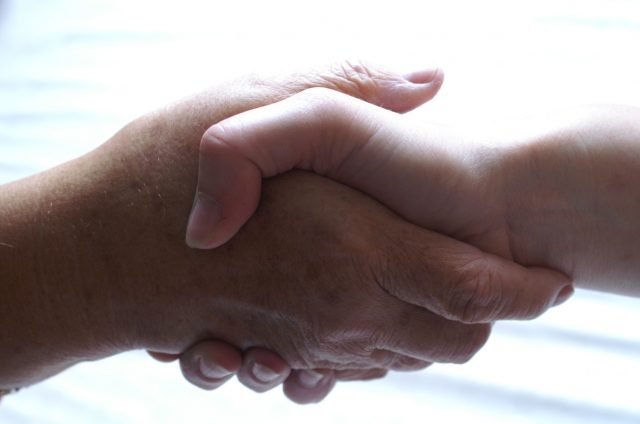

Convincing an addict to get help can seem extremely frustrating and confusing. Each person is different, and this is undoubtedly true with addictions, as well.
You may have asked a loved one with an addiction to get help in the past, and received a response such as, “I’m fine”, or “It’s not a big problem”. Many times, an addict will even tell you they haven’t used drugs in months or years, even if it isn’t true.
Since each person and addiction is different, there isn’t a one-size-fits-all solution to this question; however, there are some helpful tips you can employ, which could make all the difference.
Enabling and helping are two very different yet easy to confuse things. Enabling an addict means helping to provide for their addiction. This can involve multiple different scenarios, such as:

The main difference between enabling and helping is whether your efforts aid their addiction or bring them away from it.
For example, you can still provide a place for an addicted loved one to live on the condition that they maintain a full-time job.
You can still support an addicted loved one by buying them groceries instead of giving them cash.
The main gist of this situation is shifting your focus in order to see how you can help without enabling their addiction.
One behavior to watch out for is multiple helpers. One common behavior of someone addicted to drugs is to reach out to old connections or friends asking for help. They will generally ask for cash, a place to live, etc..
Addicts tend to hide this behavior and make it feel like you are the only one they are reaching out to in order to guilt you into giving them money, which only fuels their addiction.
One of the most important things you can do is ensure that an addict has a person to reach out to. One of the most effective and helpful solutions for someone battling addiction is to have a support “buddy” or someone they can turn to for help when they are feeling intense cravings for their addiction.

This means that if they are feeling the urge to indulge in their addiction, they will instead call you or spend time with you in order to interrupt that thought or action.
It’s important to make it well known that this is something you are comfortable with, as many addicts fear either being judged by you or feel like they are wasting your time.
Don’t reprimand them when they call for help; instead, show them love and support. An addict who is reaching out for help already know they have a problem, the last thing they want to hear is negative comments about their addiction.
A rehabilitation center is an excellent option for anyone struggling with chronic addiction. Many addicts are hesitant to go, as they often fear what will happen and have no idea what a rehab center is actually like.
Sit down with them and have an honest conversation about their needs and what their current and future plans are.
Many addicts only think in the moment, so flushing out a 1-year plan can help them feel the initial motivation they need to attend rehab and get clean.
One of the most helpful practices for someone who is unwilling to go to rehab is to sit down and research it together. Start off by looking for rehab centers in your area. Read reviews, check out their websites, and ask questions about their programs and daily schedules.
Many times, a fear of the unknown is the main obstacle that gets in the way of someone seeking help. It’s important to know that no one is going to judge or ridicule you for having an addiction at a rehab center.
Rehab centers are meant for people who are struggling with addiction, so don’t feel embarrassed or unsure, no matter what your addiction is they have both seen and treated it.
One of the most important things you can do to help an addict is to help them find a purpose. This is extremely important for anyone just coming out of rehab but applies to anyone battling addiction.
Finding a purpose is something that should consume your time and motivate you. It doesn’t have to include a goal, but oftentimes a goal is very helpful in this process.
For example, maybe the person struggling with addiction has been working in retail and wants to learn how to program. They then set a goal to spend 4 hours a day pursuing this, with the end goal of getting a junior-level programming job within a year.
Whatever the purpose may be, it’s important that it’s something they have an extreme interest or desire for. It’s important to cultivate and encourage this desire so that it grows within them, keeping them busy and providing another outlet for their time besides drugs.

It’s just as important to avoid negative experiences as it is to provide positive experiences. Drug cravings are often brought on by disappointment, anger, failure, or stress. Avoiding these situations as much as possible will help to prevent relapses.
Do everything in your power to be supportive and not negative. Even if your loved one has a relapse, stay positive and encourage them to keep moving forward. If you show anger, an addict will be less likely to trust you moving forward, and may not tell you when they need help.
Overall, it’s important to be patient and mindful when dealing with anyone who is struggling with addiction. Do everything you can to be a helpful lifeline, but avoid negative emotion and enabling behaviors.